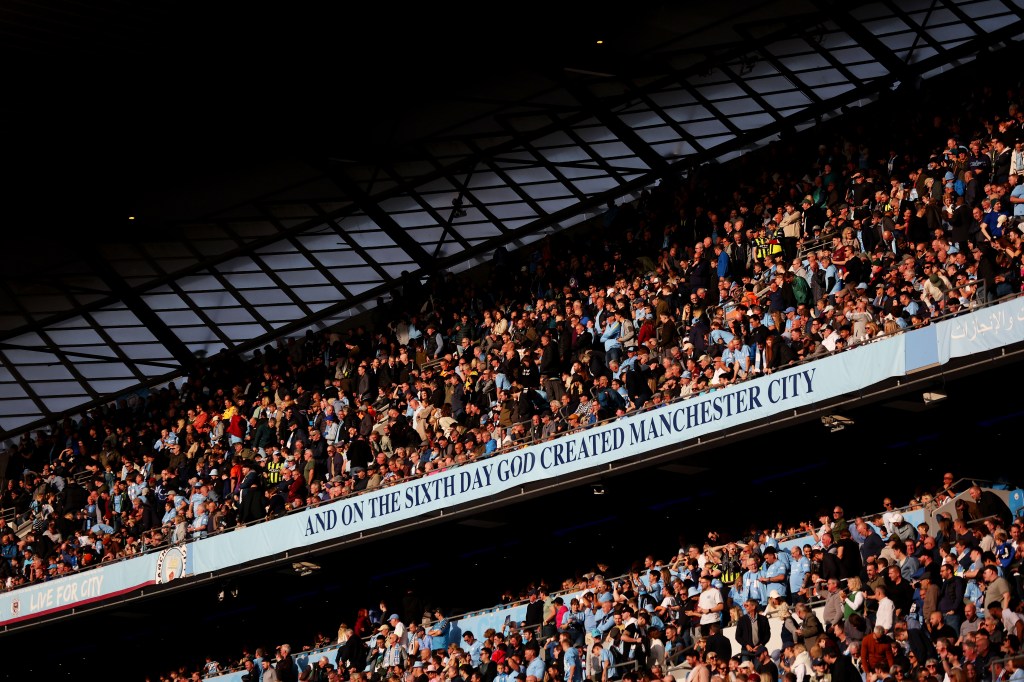The temperature has risen considerably in English soccer governance circles over the past week, with one observer describing the elite Premier League as being in a “state of civil war” in the wake of a court ruling over sponsorship deal rules.
With the government briefing that it will table the bill to introduce an independent regulator for the game within a month, the sense that the game is nearing a pivotal moment is growing.
The latest chapter was sparked when the verdict in a case bought by current league champions Manchester City against the Premier League over the issue of associated party transactions (APT) was announced. APT rules are aimed preventing clubs striking sponsorship deals with companies linked to the club’s owners at prices above fair market value.
Fair market value
Restrictions on fair market value (FMV) were introduced in 2021 and they give the Premier League the right to assess the value of such deals to decide whether they have been inflated in order to give clubs more to spend.
City challenged the entire framework of APTs, and also a number of specific applications of those rules. The tribunal’s verdict gave both sides the chance to claim victory, which they have both vigorously done. City claim the decision vindicates its assertion that the entire APT edifice is unlawful, and shows that the Premier League broke its own rules. The Premier League says the majority of City’s challenges were unsuccessful, and that the judgment deemed APT rules to be necessary.
Study of what the ruling says, rather than what the parties involved say it says, reveals that it finds APT rules to be broadly compatible with competition law. But in a number of instances specific rules were found either to be unlawful, or to have been implemented poorly or in breach of the Premier League’s own rules.
City’s assertion that “the Associated Party Transaction (APT) rules have been found to be unlawful” is clearly not supported by the wording of the judgment. If the word “the” was replaced by the word “some”, the statement would be accurate.
Shoddy application of rules
But the finding that the Premier League’s application of its own rules ranged from shoddy to incorrect undermines the PL’s claims of victory, and comes as a major embarassment just weeks after the collapse of a League action against Leicester City due to poorly worded regulations. Yet the Premier League continues to argue independent regulation is not needed, because it is fully capable of regulating itself.
As the football writer Ian King said on his Unexpected Delirium SubStack: “This all ultimately stems from [the Premier League’s] own failure of regulation in allowing clubs to be bought by those that it has. Money trumped sport in this league years ago. It is also fundamentally a failure of regulation to end up in this position in the first place.”
City has raised the stakes by writing to each of the other 19 clubs in the league telling them the Premier League’s claims of victory were “misleading”. The letter went on to say: “Given the findings in the award, this is the time for careful reflection and consideration by all clubs, and not for a kneejerk reaction … Such an unwise course would be likely to lead to further legal proceedings with further legal costs.”
Legal war of attrition
The letter was sent ahead of a planned emergency meeting at which a vote to amend the APT rules is expected, and indicates City is prepared to engage in a legal war of attrition with other clubs.
Henry Winter, former Chief Football Writer at The Times, said in his SubStack: “It’s sad to see to such a successful entity as the Premier League ripping itself apart … All the clubs, including City, need to remember they are stronger together, working with the league executive.”
But he also quoted “an experienced club official” as describing increasingly bewildered Premier League executives “caught in the middle of an existential culture/business war of USA v sovereign wealth systems.” The official goes on to say the league has perpetrated a “terrible failure to lead from the front with winning arguments about what makes English football special and why we need to keep it looking and feeling more like it has for 150 years and less like a courtroom drama and global plaything.”
So far, the unedifying goings on off the field have not affected the game’s popularity – with physical attendance and TV audiences still high. But there is growing discontent within the game about a number of issues, and the legal slugfest is doing little to reduce the weary feeling growing among those who follow the game that it is losing its way.
It’s long been accepted that sport is a business, but is the business undermining the sport – and eventually compromising the whole package? It is that existential question that any regulator may well ultimately have to consider.
• Full disclosure – author Martin Cloake has worked with the Football Supporters’ Association on the proposed legislation for independent regulation. Opinions expressed are his own.













